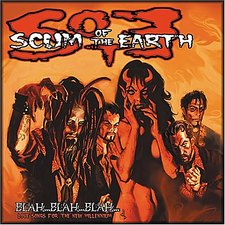
I just read an article titled Fundamentalist atheists show arrogance, too, by Paul C. Campos, in which he discusses what he considers to be militant atheists.
I'd like to point out a couple of problems I have with this article:
Needless to say, just as most religious people aren't fundamentalists, the same holds true for atheists. Those who are, however - what we might think of as the Taliban of atheism - often have a prominence well beyond their sheer numbers.
I have a real problem with him comparing some atheists to the Taliban. I have great difficulty understanding the comparison between stubborn and opinionated atheists and a violent and intolerant movement that drastically limited peoples' freedoms.
It seems to be a favorite way to condemn outspoken atheists these days, using such words as "militant" to make it seem like they are dangerous or violent, when all they are doing is letting their opinion be heard and criticizing beliefs they find dangerous.
The intellectual naivete of the fundamentalist atheist is reflected in the sorts of arguments he puts forth when he dismisses religious beliefs as not merely mistaken, but nothing more than childish superstitions that can't be taken seriously by any enlightened adult.
Nobody hesitates to label a belief in fairies or in Santa Claus a "childish superstition". I would like to know what exactly elevates religions above this title, besides the fact that many adults continue to believe them?
The alternative to fundamentalism involves embracing the idea that the world is a deeply complex and mysterious place, which human beings have in all likelihood barely begun to understand.
I don't know many atheists who would claim to have the universe figured out. All that is claimed is that religion's explanations are inadequate and/or false.
The non-fundamentalist atheist recognizes that many religious beliefs are just as rationally defensible as his atheism...
Why should an atheist recognize that many religious beliefs are just as rationally defensible as atheism, when they clearly are not?
What is so rational about believing in the virgin birth or a divinely inspired book that is filled with flaws and contradictions as the inerrant truth of god?
...and that indeed he might well hold those beliefs if his genes or his upbringing or his education had made him a slightly different (but equally rational) person.
It is my rationality above all, that led me to my atheism, more so than my upbringing, education, or genes. I was, in fact, born into a Christian family and raised as a believer. My rationality led me to doubt these beliefs, and my education helped me to find the answers.
Given the same rationality, but with different genes, upbringing, or education, I would have had the same doubts about my beliefs, although perhaps I wouldn't have been as free or as equipped to reject them for atheism.
















